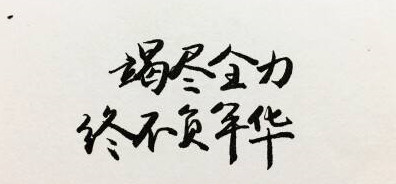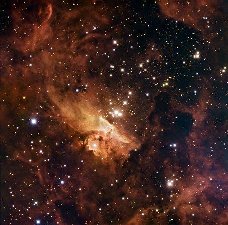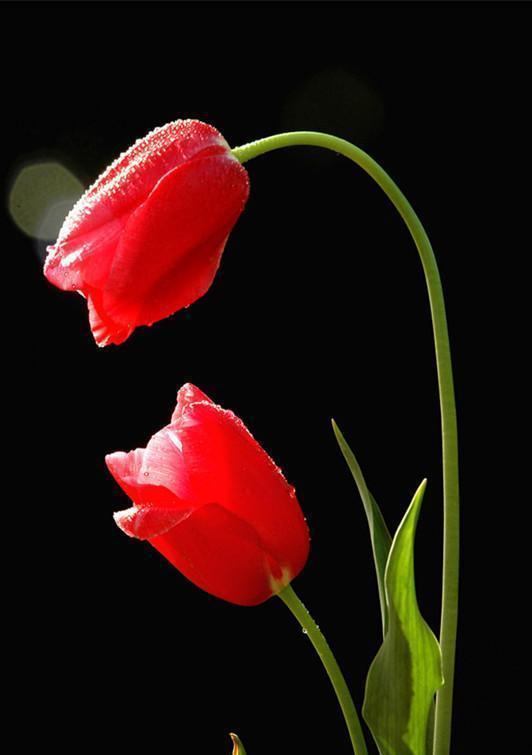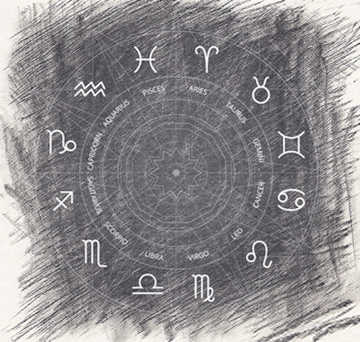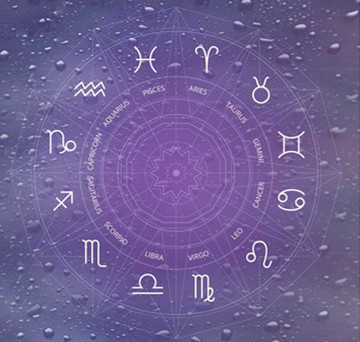 摘要:
idealistic是什么意思idealistic英[?a?di??l?st?k]美[a??di??l?st?k]adj.理想主义的;唯心主义的;空想家的;唯心论的;[网络]空想的...
摘要:
idealistic是什么意思idealistic英[?a?di??l?st?k]美[a??di??l?st?k]adj.理想主义的;唯心主义的;空想家的;唯心论的;[网络]空想的... idealistic是什么意思
idealistic
英 [?a?di??l?st?k] 美 [a??di??l?st?k]
adj.理想主义的; 唯心主义的; 空想家的; 唯心论的;
[网络]空想的; 理想主义的; 理想主义;
[例句]This idealistic concept is at variance with reality.
这种理想主义的观念和现实相矛盾。
lofty的比较级怎么写
loftier
词形变化:形容词比较级:loftier,loftiest;副词:loftily;名词:loftiness。
英音 [ 'l?fti ] ; 美音 [ 'l?:fti ]
副词
1.(建筑物、山等)高耸的,巍峨的
2.(思想,目标等)崇高的,高尚的
3.傲慢的,高傲的
词形变化:形容词比较级:loftier,loftiest;副词:loftily;名词:loftiness。
同义词:eminent,soaring,towering;exalted,grand,high-flown,high-minded,idealistic,noble-minded,rarefied,rarified,sublime;gallant,majestic,proud。
单词分析:这些形容词均有“高的”之意。
high:普通用词,指本身高出地面之上,与low相对,不用于人。也可指程度、地位、声音等的高,还可作引申用。
tall:仅指人或物的高度,指物的“高”时,可与high换用。
lofty:
书面用词,指外观宏伟壮丽的高耸物;用于指思想或目的时,表示崇高。贬义指 态高傲。12星座的性格特点及优缺点
★白羊座总论★ 3.21-4.19
★优点★
深爱自由,不喜欢受到外界的压抑。有企图心和冒险精神,勇於尝试,精力旺盛,一旦确定目标就会全力以赴。
★缺点★
缺乏耐性、暴躁、冲动、自私、以自我为中心、尖酸刻薄、好斗、粗枝大叶而不细心。
★性格★
白羊座的人最擅长维护自己的利益和保护自己,甚至为了些微的利益而不惜说谎,不过他们却不善自圆其说,谎言很容易被拆穿;好在他们虽自私,还算讲理,一旦被拆穿谎言时,也能勇於承认。此星座的人多半性急,因此往往出言不逊,且口不择言。具有强烈白羊座倾向的人,性格进取、慷慨、活泼。应变能力敏捷,处事明快,但往往粗枝大叶容易忽略细节,至於敏锐的反应也常会有负面的影响,例如容易激怒别人、冲动。和别人发生争执时,总是设法占尽上风,而最糟糕的一种,往往自私自利,完全不会考虑别人的立场。
白羊座的人所以喜欢开快车并不是想自杀,而是想成为个中的翘楚。白羊座的冒险行为并非仅因贪图快感,虽然有人因为开车横冲直撞而远近驰名,但也可能因为英勇表现而获得奖章。个性粗枝大叶,常在不留意中割伤或烫伤。不怕噪音,有时甚至喜欢喧哗,不过头痛的次数也比别人频繁。
白羊座的人思想敏锐,天性好动难以安份,别人绝对无法勉强他去从事不感兴趣的事物。面对逆境时,只有在确定努力会得到回报时,才能保持耐性。不顾一切勇往直前的特质只是神话的传说,真正的白羊座性格是确定目标之后才肯一试。
★金牛座总论★ 4.20-5.20
★优点★
有主见、意志坚定、热情、友善、有耐心及责任感、可以信赖、实际、可靠、具有商业头脑和牢靠的价值观、富美感,喜欢美食和精致昂贵的奢侈品。
★缺点★
贪婪、顽固、嫉妒心重、占有欲强、懒惰、古板、缺乏应变力、自我放纵、易怒。
★性格★
此星座的人就如树木根植於泥土中,为大地恒久不变的景观般,有着根深蒂固的特质,一旦打定主意,就有不易更改的韧性和顽固。他追求永恒,因而性格上显得稳重而可靠,喜欢炫耀,最忌讳别人的顶撞和批评,周遭的亲友须适时地给他一点激励,否则他会因为过度追求完美,而显得步调缓慢,甚至导致精神涣散。
无论家庭、事业或是婚姻上,最重视安全感——不过常会为了突发的牛脾气毁掉苦心经营的一切。他还不算暴躁易怒,但会将积压已久的怒气,一下子发出来,那时声势就相当惊人。因为此星座的人具有强烈的占有欲,所以在婚姻生活中之争吵,导火线多半和嫉妒有关。
金牛座的人相当有耐性,待人也称得上诚恳、友善,因此具备吸引人的条件,不过有时也会显得呆板且惹人厌。他习惯好整以暇地去做每一件事,因而不适合具时间性的工作,此外内敛的性格也不适合从事冒险;比较适合乡村,可从园艺工作中,得到最大的满足,金牛座的人精於经商——他懂得赚钱之道,更知道如何聚财。喉部是身体上较脆弱的部分。
★双子座总论★ 5.21-6.20
★优点★
适应力强、机智、敏捷、喜欢忙碌和变化、主动、活泼而健谈、聪慧且多才多艺、具有写作和语言方面的天才、对时尚有着敏锐的感受力,能够永久维持着年轻和时髦的外貌。
★缺点★
怀疑心重、善变、双重性格、缺乏耐性、狡猾、不安份、过人的精力未能发时则脾气暴躁且喋喋不休。
★性格★
双子座是所有星座中最能保持青春和活力的星座,他们经常都处於行动的状态,而且往往同时进行好几件事情,天生具有双重性格,对於呆板及枯燥的事物容易感到厌烦,而导致半途而废。双子座的人喜欢不断地动脑筋,所以对神经系统要多加留意,因为压力过大时,容易导致崩溃。
双子星座的人具有良好的判断力,永远不会改变主意——然而一旦与人发生争执时,他很可能完全改变立场,对自己原本早先的看法则一口否定,像是未曾说过似的(很矛盾吧?!真像是有两个人同时在他体内似的)。他生性博而不精,对种种事物都好奇却又不能持久,所以样样都能沾到一点皮毛,却无法得其精髓。和双子座的人争辩,是种十分不愉快的经验,因为此星座的人言词犀利,精於操纵语言,只要有一点粗浅的印象,便能将这一点最起码的认识,说得像煞有介事,总之他瞎吹胡捧的本事绝对是第一流的。
★巨蟹座总论★ 6.21-7.21
★优点★
善良、热心、敏感、富有同情心;长於记忆、脑筋敏锐、领悟力好、适应力佳、有高度的想像力;具强烈的母性或父性的本能、保护色彩浓厚、谨慎、节俭;有坚强意志力和耐力,不屈不挠;理财观念甚佳;爱国;忠於爱情,重视家庭的温暖与安定,擅理家务,重视家庭的和谐,是所有星座中最具家庭观念的星座。
★缺点★
天性多疑且情绪化致难以取悦、嫉妒心强并有恋母情结、可能因过度敏感而导致自怜、个性善变、不稳定、有时因生活态度太认真而失之无趣、心胸狭窄、苛刻、贪吃、邋遢、喜欢被奉承。
★性格★
巨蟹座的人生性多愁善感,有忧郁和作白日梦的倾向,他常会为过去那段美好的日子而低回缅怀不已,并容易生活在过去(水星的位置在巨蟹座时会加强这种性格),不过他也能充分掌握现在,巨蟹座的人具有不屈不挠的意志,一旦拟定计划,必然付诸实现。为了私人利益,有时会过於大方,应避免不必要的奢侈。
巨蟹座的人易有极端的情绪化表现,他们的情绪阴晴不定,常会没来由地大发脾气,对别人的问话,也会随自己的高兴予以反驳或根本拒绝回答;兴致好的时候,他却变成最佳的听众,充分发挥体谅、设想周到的优点。他们的性格时常在两个极端间摇摆不定,只有在受到家庭影响时,才有可能安定下来,因为巨蟹座天生热爱家庭,并珍惜婚姻的关系。
巨蟹座的人心胸狭窄,常为了一点芝麻小事而耿耿於怀,缺乏容人的雅量,经常像被激怒的刺般竖起浑身的尖刺,拒人於千里之外,不过他自己在言词上不小心伤到朋友时,也会有自知之明,而感到内疚,应学习容忍、体谅别人,如此再加上其有礼貌、善交际、富幽默感之迷人个性及对人道主义的尊崇,会吸引许多朋友。事实上巨蟹座的人经常在强悍外表下,隐藏着柔弱的内心,他就像这星座的表徵——螃蟹,用硬如铁甲的外壳将自己密密地武装起来。
★狮子座总论★ 7.22-8.22
★优点★
为人博爱、热心、慷慨、有领导能力、花钱大方、思想开阔、具创新的能力、对戏剧和表演具有天份。
★缺点★
主观意识太强、自以为是、偏狭、无法容忍与自己相左的观点、自视过高、势利、权力欲过强、仗势欺人、好管闲事。
★性格★
狮子座人的特性一目了然,毫无复杂或隐藏难解之处。是王者、是上司,总之,在团体中他就是leader,且其深知自己此种操纵和领导别人的能力。此星座不仅擅长领导,本身也能以身作则,努力工作。当太阳的位置在狮子座时,此种倾向更加明显。这星座具有自大、武断、不容异己的缺点,因而需要时时约束自己、自我反省,才能将与生俱有的如乐於助人、大方等优点作最好的发挥。
狮子座天生具有戏剧天才,是舞台上众所瞩目的焦点。若周遭某人喜着华丽衣装、举止雍容、作风海派、遇事果决,那麽十有八九是个狮座人。狮座人天性热情、乐於助人、乐观、进取,有他们存在的场合,往往就有阳光和欢笑。
令人感到讶异的是,狮子座的人相当敏感,容易受到伤害,不过因其具有戏剧天份,故在表面上能够不动声色,并且对不公平的对待展现出最大的宽容。在被激怒的时候,他会以王者的威严慑服对方。狮子座的人尽管出身寒微,依旧拥有一己的尊严和属於自己的王国。 处女座 23/08-23/09
Modest, shy, meticulous, reliable, practical, diligent, intelligent and analytical.
优点:谦逊不夸大,脚踏实地,事事谨慎小心,勤奋努力有耐性,守本分靠得住,有精确的观察力。
Fussy, a worrier, overcritical, harsh, perfectionist and conservative.
缺点:太过吹毛求疵,唠叨琐碎,杞人忧天,追求完美,思想保守。天秤座 24/09-23/10
Diplomaitic, urbane, romantic, charming, easygoing, sociable, idealistic and peaceable.
优点:有外交手腕,天生的优雅风采,浪漫的恋爱高手,适应力强,对美感有鉴赏力,平静详和。
Indecisive, changeable, gullible, easily infuenced, flirtatious and self-indulgent.
缺点:优柔寡断犹豫不决,意志不坚定,易受欺骗,怕得罪人,轻佻浮躁,过于放纵自已。天蝎座 24/10-22/11
Determined, forceful, emotional, intuitive, powerful, passionate, exciting and magic.
优点:对决定的事有执行力,说服力强,直觉敏锐,不畏挫折坚持到底,充满激情,有凝聚力。
Jealous, resentful, pulsive, obsessive, secretive and obstinate.
缺点:善妒爱吃醋,太过好强,占有欲过高,疑心病重,报复心太强,顽固倔强。 射手座 23/11-21/12
Optimistic, freedom-loving, jovial, good-humored, honest, straightforward, intellectual and philosophical.
优点:天性乐观,热爱自由,对人生充满理想,丰富的幽默感,正直坦率,待人友善,聪明过人,有自己的处世哲学。
Blindly optimistic, careless, irresponsible, superficial, tactless and restless.
缺点:盲目乐观,粗心大意,不愿意负责任,缺乏耐性,不懂三思而行,做事不老练,喜怒太形于色。摩羯座 22/12-20/01
Practical, prudent, ambitious, disciplined, patient, careful, humorous and reserved.
优点:有实际的人生观,做事脚踏实地,有远大抱负,意志力强不容易受影响,处处谨慎,有克服困难的毅力,对人谦逊,有独树一格的幽默感。
Pessimistic, fatalistic, miserly and grudging.
缺点:消极悲观,过于贪婪,个人利己主义,过于压抑自己的欲望。水瓶座 21/01-19/02
Friendly, humanitarian, honest, loyal, original, inventive, independent and intellectual.
优点:乐于助人,充满人道精神,诚实善良,创意十足,个性独立,拥有理想的智慧。
Intractable, contrary, perverse, unpredictable, unemotional and detached.
缺点:缺乏热情,不按牌理出牌,太相信自己的判断,思想多变没有恒心,太过理智情趣不足。双鱼座 20/02-20/03
Imaginative, sensitive, passionate, kind, kelfless, unworldly, intuitive and sympathetic.
优点:想像力丰富,善解人意,心地仁慈,舍己为人不自私,直觉力强,懂得包容。
Escapist, idealistic, secretive, vague, weak-willed and easily led.
缺点:不够实际幻想太多,太情绪化多愁善感,意志不坚定,容易受环境影响。
谁知道《土生子》(《nativeson》)的英文大概意思啊?
Book One: Fear
Bigger Thomas wakes up in a dark, small room at the sound of the alarm clock. He lives in one room with his brother, Buddy, his sister, Vera, and their mother. Suddenly, a rat appears. The room turns into a maelstrom and, after a violent chase, Bigger kills the animal with an iron skillet and terrorizes Vera with the dark body. After Bigger rubs one out, Vera faints and the mother scolds Bigger, who hates his family because they suffer and he cannot do anything about it.
That evening, Bigger has to see Mr. Dalton for a new job. Bigger's family depends on him. He would like to leave his responsibilities forever but when he thinks of what to do, he only sees a blank wall. He walks to the poolroom and meets his friend Gus. Bigger tells him that every time he thinks about whites, he feels something terrible will happen to him. They meet other friends, G. H. and Jack, and plan a robbery. They are afraid of attacking a white man but none of them wants to say so. Before the robbery, Bigger and Jack go to the movies. They are attracted to the world of wealthy whites in the newsreel and feel strangely moved by the tom-toms and the primitive black people in the film. But they feel they do not belong to either of those worlds. After the cinema, Bigger attacks Gus violently. The fight ends any chance of the robbery occurring. Bigger is obscurely conscious that he has done this on purpose.
When he finally goes to see Mr. Dalton at his home, Bigger is very afraid, and therefore, also very angry. He does not how to behave in the big house. Mr. Dalton and his blind wife use strange words. They try to be kind to Bigger but they make him very unfortable because Bigger does not know what they expect of him. Then their daughter, Mary, enters the room, asks Bigger why he does not belong to a union and calls her father a "capitalist." Bigger does not know that word and is even more confused and afraid to lose the job. After the conversation, Peggy, the irish cook, takes Bigger to his room and tells him that the Daltons are a nice family but that he must avoid Mary's munist friends. Bigger has never had a room for himself before.
That night, he drives Mary around and meets her boyfriend, Jan. Jan and Mary infuriate Bigger because they talk to him, oblige him to take them to the diner where his friends are, invite him to sit at their table, and tell him to call them by their first names. At the diner they buy a bottle of rum. Bigger drives throughout the park, and Jan and Mary drink the rum, and fool around in the back seat. Then Jan and Mary part, but Mary is so drunk that Bigger has to carry her to her bedroom when they arrive home. He is terrified someone will see him with her in his arms, but he cannot resist the temptation of the forbidden and he kisses her.
Just then, the bedroom door opens. It is Mrs. Dalton. Bigger knows she is blind but is terrified she will sense him there. He tries to make Mary still by putting the pillow over her head. Mrs. Dalton approaches the bed, smells whiskey in the air, scolds her daughter, and leaves. Just then, Bigger notices that Mary is not breathing anymore. She has suffocated. Bigger starts thinking frantically. He decides he will tell everyone that Jan, the munist, took Mary into the house. Then he thinks it will be better if Mary disappears and everyone thinks she has gone for a visit. In desperation, he decides to burn her body in the house's furnace. He has to cut her head off in order to fit her into the furnace, but finally manages to put the body inside. He adds extra coal to the furnace, leaves it there to burn, and goes home.
Book Two: Flight
When Bigger talks with his family and meets his friends, he feels different now. The crime  gives meaning to his life. When he goes back to the big house, Mr. Dalton notices her daughter's disappearance and asks Bigger about the night before. Bigger tries to blame Jan. Mr. Dalton sends Bigger home for the day, and Bigger decides to visit his girlfriend, Bessie. Bessie mentions a famous case in which the kidnappers of a child first killed him and then asked for ransom money. Bigger decides to do the same. He tells Bessie that he knows Mary has disappeared and will use that knowledge to get money from the Daltons, but in the conversation he realizes Bessie suspects him of having done something to Mary. Bigger goes back to work. Mr. Dalton has called a private detective, Mr. Britten, and this time, sensing Britten's racism, Bigger accuses Jan on the grounds of his race (he is Jewish), his political beliefs (munist), and his friendly attitude towards black people. When Britten finds Jan, he puts the boy and Bigger in the same room and confronts them with their conflicting stories. Jan is surprised by Bigger's story but offers him help.
gives meaning to his life. When he goes back to the big house, Mr. Dalton notices her daughter's disappearance and asks Bigger about the night before. Bigger tries to blame Jan. Mr. Dalton sends Bigger home for the day, and Bigger decides to visit his girlfriend, Bessie. Bessie mentions a famous case in which the kidnappers of a child first killed him and then asked for ransom money. Bigger decides to do the same. He tells Bessie that he knows Mary has disappeared and will use that knowledge to get money from the Daltons, but in the conversation he realizes Bessie suspects him of having done something to Mary. Bigger goes back to work. Mr. Dalton has called a private detective, Mr. Britten, and this time, sensing Britten's racism, Bigger accuses Jan on the grounds of his race (he is Jewish), his political beliefs (munist), and his friendly attitude towards black people. When Britten finds Jan, he puts the boy and Bigger in the same room and confronts them with their conflicting stories. Jan is surprised by Bigger's story but offers him help.
Bigger storms away from the Dalton's. He decides to write the false kidnap note when he discovers that the owner of the rat-infested flat his family rents is Mr. Dalton. Bigger slips the note under the Dalton's front door, then returns to his room. When the Daltons receive the note, they contact the police, who take over the investigation from Britten, and journalists soon arrive at the house. Bigger is afraid, but he does not want to leave. In the afternoon, he is ordered to take the ashes out of the stove and make a new fire. He is so terrified that he starts poking the ashes with the shovel until the whole room is full of smoke. Furious, one of the journalists takes the shovel and pushes Bigger aside. He immediately finds the remains of Mary's bones and an earring in the stove. Bigger flees.
Bigger goes directly to Bessie and tells her the whole story. Bessie realizes that white people will think he raped the girl before killing her. They leave together, but Bigger has to drag Bessie around because she is paralyzed by fear. When they lie down together in an abandoned building, Bigger rapes her, and he realizes he will have to kill her. He hits Bessie with a brick several times, and then throws her through a window, into and air shaft, but he forgets that the only money he had was in her pocket, a symbol of her value to him.
Bigger runs through the city. He sees newspaper headlines concerning the crime and overhears different conversations about it. Whites call him "ape." Blacks hate him because he has given the whites an excuse for racism. But now he is someone; he feels he has an identity. He will not say the crime was an accident. After a wild chase over the rooftops of the city, the police catch him.
Book Three: Fate
During his first few days in prison, Bigger does not eat, drink, or talk to anyone. Then Jan es to see him. He says Bigger has taught him a lot about black-white relationships and offers him the help of a munist lawyer, Max. In the long hours Max and Bigger pass together, Max learns about the sufferings and feelings of black people and Bigger learns about himself. He starts understanding his relationships with his family and with the world. He acknowledges his fury, his need for a future, and his wish for a meaningful life. He reconsiders his attitudes about white people, whether they are prejudiced, like Britten, or liberal, like Jan.
At Bigger's trial, Max tells the judge that Bigger killed because he was cornered by society from the moment he was born. He tells them that a way to cut the evil sequence of abuse and murder is to sentence Bigger to life in prison and not to death. But the judge apparently does not sympathize and sentences Bigger to the electric chair. In the last scene, while he waits for death, Bigger tells Max, "I didn't know I was really alive in this world until I felt things hard enough to kill for 'em." Bigger then tells him to say "hello" to Jan. For the first time, he calls him "Jan," not "Mister," just as Jan had wanted. This signifies that he finally sees whites as individuals, rather than a looming force. Max then leaves, and Bigger is alone.
Characters
Mary Dalton: An only child, Mary is a very rich white girl who has far leftist leanings. She is a munist sympathizer recently filmed frolicking with Jan, a known munist party organizer. Consequently, she is trying to abide, for a time, by her parents' wishes and go to Detroit. She is to leave the morning after Bigger is hired as the family chauffeur. Under the ruse of a University meeting, she has Bigger take her to meet Jan. When they return to the house, she is too drunk to make it to her room unassisted and Bigger thus helps her. Mrs. Dalton es upon them in the room and Bigger smothers her for fear that Mrs. Dalton will discover him. Mary, as a symbol of white America, is destroyed by Bigger, who symbolizes what America hates and fears.
Henry Dalton: Father of Mary, he owns a controlling amount of stock in a real estate firm which maintains the black ghetto. Blacks in the ghetto pay too much for rat-infested flats. As Max points out at the inquest, Mr. Dalton refuses to rent flats to black people outside of the designated ghetto area. He does this while donating money to the NAACP, buying ping-pong tables for the local black youth outreach program, and giving people like Bigger a chance at employment. Mr. Dalton's philanthropy, however, only shows off his wealth while backing up the business practices which contain an already oppressed people. That is, rather than alter the real estate business which he controls, he gives the unemployed youths ping-pong tables to play with. Mr. Dalton is blind to the real plight of blacks in the ghetto, a plight that he maintains.
Mrs. Dalton: Mary Dalton's mother. Her blindness serves to accentuate the motif of racial blindness throughout the story. Both Bigger and Max ment on how people are blind to the reality of race in America. Mrs. Dalton betrays her metaphorical blindness when she meets Mrs. Thomas. Mrs. Dalton hides behind her philanthropy and claims there is nothing she can do for Bigger. She cannot prevent his death nor can she admit to her family's direct involvement in the creation of the ghetto that created him.
Jan Erlone: Jan is a member of the munist Party as well as the boyfriend of the very rich Mary Dalton. Bigger attempts to frame him for the murder of Mary. Jan, because he has been well versed in material dialecticism (Marxism), takes the event of the murder as an opportunity to face racism. Jan had already been seeking for a way to understand the 'negro' so as to organize them along munist lines against the monied people like Mr. Dalton. He is not able to fully do so, but he is able to put aside his personal trauma and persuade Max to help Bigger. He represents the idealistic young Marxist who hopes to save the world through revolution. However, before he can do that, he must understand the 'negro' much more than he thinks he does.
Gus: Gus is another member of Bigger's gang, but he has an uneasy relationship with Bigger. Both are aware of the other's nervous anxiety concerning whites. Consequently, Bigger would rather fight Gus than shoot a white man.
Jack Harding: Jack is a member of Bigger's group of pals and the one Bigger es closest to viewing as a true friend.
Mr. Boris Max: A lawyer from the munist Party who represents Bigger against the State's prosecuting attorney. As a Jewish American, he is in a better position to understand Bigger. It is through his speech during the trial that Wright reveals the greater moral and political implications of Bigger Thomas's life. Even though Mr. Max is the only one who understands Bigger, Bigger still horrifies him by displaying just how damaged white society has made him. When Mr. Max finally leaves Bigger he is aghast at the extent of the brutality of racism in America.
Bessie Mears: Bigger's girlfriend who is murdered by him because he fears she might speak against him. She is representative of all the women in the ghetto, like Bigger's mother and sister. All these women have the same tired look about their eyes and the same dreary occupations of washing clothes or working in kitchens. Bessie is so tired and depressed by the drudgery of her life that she only wants to drink when not working. Bigger provides drink and she has sex with him, yet there seems to be no love between them. Still, as oppressed as she is, she cannot acquiesce to the murder of Mary. Fearing her inability to sanction the crime, Bigger brings her out with him to hide. He rapes her, bashes her head, and tosses her body into an airshaft.
Peggy: Peggy is the Irish-American housekeeper for the Daltons and, like Max, can empathize with Bigger's status as an "outsider." However, she is more tyal of poor whites who are sure to invest in racism if only to keep someone below themselves. Like everyone in the Dalton family, Peggy hides her dislike for blacks and treats Bigger nicely.
Bigger Thomas: The protagonist of the novel, Bigger mits two ghastly murders and is put on trial for his life. He is convicted and sentenced to the electric chair. His acts give the novel action but the real plot involves Bigger's reactions to his environment and his crime. Through it all, Bigger struggles to discuss his feelings, but he can neither find the words to fully express himself nor does he have the time to say them. However, as they have been related through the narration, Bigger—tyal of the "outsider" archetype—has finally discovered the only important and real thing: his life. Though too late, his realization that he is alive—and able to choose to befriend Mr. Max—creates some hope that men like him might be reached earlier.
Debatable as the final scene is, in which for the first time Bigger calls a white man by his first name, Bigger is never anything but a failed human. He represents the black man conscious of a system of racial oppression that leaves him no opportunity to exist but through crime. As he says to Gus, "They don't let us do nothing... [and] I can't get used to it." He even admits to wanting to be an aviator and later, to Max, he admits to wanting to be a great number of things. He can do nothing but be one of many blacks in the ghetto and maybe get a job serving whites; crime seems preferable. Not surprisingly, then, he already has a criminal history, and he has even been to reform school. Ultimately, the greatest thing he can do is transgress the boundary the white world has set for him. He can violate what those who oppress him hold sacred and thereby meet the challenge they set in establishing their boundaries.
Buddy Thomas: Buddy, Bigger's younger brother, idolizes Bigger as a male role model. He defends him to the rest of the family and consistently asks if he can help Bigger.
Mrs. Thomas: Bigger's mother. She struggles to keep her family alive on the meager wages earned by taking in other people's laundry. She is a religious woman who believes she will be rewarded in an "afterlife," but as a black woman accepts that nothing can be done to improve her people's situation. Additionally, she knows that Bigger will end up hanging from the "gallows" for his crime, but this is just another fact of life.
Vera Thomas: She is Bigger's sister and in her Bigger sees his mother. Bigger knows that she will inevitably have the same tired look in her eyes and bear the continual strain of a family. The other option for Vera is to bee like Bessie—a drunkard.
